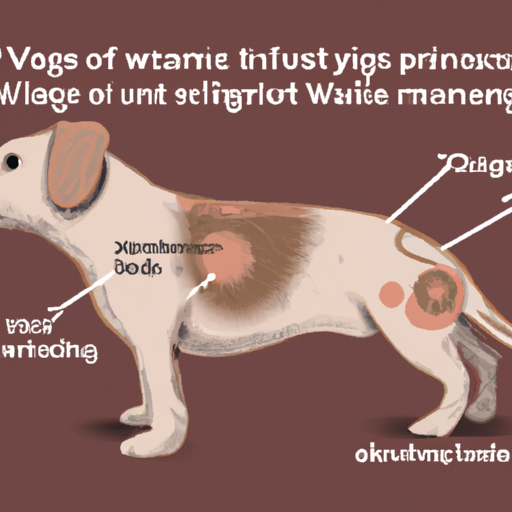As a dog parent, you may have come across some odd lumps and bumps on your furry friend’s skin. One such anomaly could be warts.
Understanding Warts
Just like in humans, warts in dogs are caused by viruses that lead to abnormal growths on the skin. These growths are typically benign and non-cancerous, but they can cause discomfort or become problematic if they grow large or multiply.
Here’s a basic outline to help you identify warts:
- Round or irregular in shape
- Rough, cauliflower-like appearance
- Most commonly found on the face, lips, eyelids, or paws
- Can vary in size from very small to several inches in diameter
What Causes Warts in Dogs?
Warts in dogs are mainly caused by the canine papillomavirus. This virus is highly contagious among dogs, and your dog can become infected if they come into contact with another dog carrying the virus.
Here are the common ways the virus can spread:
- Direct contact with an infected dog
- Sharing toys or bedding with an infected dog
- Visiting places where an infected dog has been
How to Prevent Warts in Dogs
Prevention is always better than cure. Here are some ways to reduce your dog’s risk of contracting the virus:
- Keep your dog’s living area clean and disinfected
- Avoid contact with dogs known to have the virus
- Regular check-ups for early detection
Treatment Options for Warts in Dogs
If your dog does get warts, don’t panic. There are several treatment options available:
- Observation: If the warts aren’t causing any discomfort or problems, your vet might recommend just keeping an eye on them.
- Surgical Removal: If the warts are large, multiplying quickly, or causing issues, they may need to be surgically removed.
- Medication: There are also medications available that can help to shrink or eliminate warts.
Frequently Asked Questions
Q1: Can warts on dogs be prevented?
A: While there’s no foolproof way to prevent warts, keeping your dog’s immune system strong and avoiding contact with infected dogs can help.
Q2: Are warts on dogs dangerous?
A: Most warts are benign and not dangerous, but they can cause discomfort or issues if they grow large or multiply.
Q3: Can humans get warts from dogs?
A: No, the canine papillomavirus cannot be transmitted to humans.
Q4: How are warts on dogs diagnosed?
A: Your vet will likely be able to diagnose a wart just by looking at it, but in some cases, they may take a biopsy.
Remember, when it comes to your dog’s health, always consult with your vet. Stay informed, and you’ll be well-prepared to take the best possible care of your furry friend.



